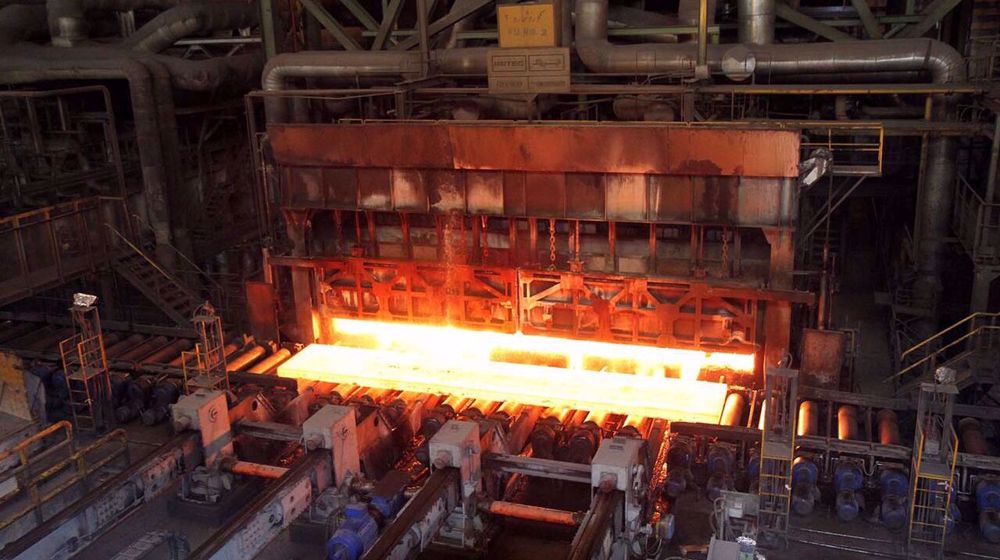Why Iran has to develop a semiconductor industry
Iran's privileged position in science and technology and its great pool of educated and highly skilled human resources promises a bright horizon for promoting and localizing the semiconductor industry in the face of cruel sanctions.
The semiconductor and chips industry is one of the most profitable industries in the world, which, due to their wide applications, guarantee the optimal performance of other industries. This explains why the industry has become a priority for many countries.
Semiconductors are materials which have a conductivity between conductors generally metals and non-conductors or insulators such as ceramics.
They have revolutionized the electronics industry, leading to the development of smaller, more efficient, and reliable electronic devices without which many new technologies such as computers and smart phones would not be possible.
Semiconductors are also crucial to the production of cars, medical devices and weapons systems.
The semiconductor industry hit the headlines during the pandemic as supply shortages led to bottlenecks in the production of many industries depending on little chips.
Today, the strategic role of the industry is such that it can determine the position of a country in the global economy and also the extent of benefiting from the most advanced technologies in the world.
In Iran, the first efforts - though scattered - to build a local electronics industry began in the 1970s, which led to the emergence of Maadiran and Shahab companies in the public sector and Iran Electronic Industries (Sairan) in the military sector.
Helped by foreign companies, they produced a range of electronic products, some of which were assembled and some others included circuit designs based on foreign integrated circuits. Those companies are still operating, but have yet to reach the commercial production level.
Now, the imperative is for Iran to commit fully to this strategic industry in order to meet its military-security and commercial-industrial needs given the restrictions it faces due to sanctions.
The industry giants leading the way in semiconductor technology are Nvidia,TSMC, Broadcom, Samsung, ASML, and AMD which are either based in the US or in the countries allied to the United States.
For example, ASML, based in the Netherlands, is the only manufacturer of extreme ultraviolet lithography (EUV) devices used in printing microchips in the world, which the country is unlikely to sell to Iran due to sanctions.
A semiconductor is usually made of multiple materials, foremost silicon which is used for the production of wafers to fabricate integrated circuits.
The rare materials used in semiconductors are germanium and gallium arsenide. The most commonly used bulk gases in semiconductor manufacturing are nitrogen, helium, hydrogen and argon.
Other materials used in the semiconductor manufacturing process are ceramics because of their excellent properties such as high strength, high purity, and heat resistance. The main types of semiconductor ceramics include alumina, silicon nitride, aluminum nitride, boron nitride, and silicon carbide and so on.
Iran is among the world’s top 10 countries in terms of mineral reserves. The most important and well-known non-biological resources of Iran include coal, chromium, copper, iron ore, lead, manganese, zinc and sulfur.
Therefore, there is a huge potential in the country for the supply of raw materials used in the semiconductor and chips industry both for manufacturing and packaging of products.
For the start, the country had better try its hand in the industries in which the need for advanced technology is lower and also there is a suitable domestic market. The automotive related semiconductor and chip industry is the optimal candidate.
This will pave the ground and provide a suitable platform for the country to economically and technologically improve and expand and guarantee its position in the world.
VIDEO | 85% of Yemeni displaced people face daily hunger crisis
US House passes bill targeting charities and pro-Palestine groups
VIDEO | Supporting Gaza genocide
Hezbollah attacks Israeli forces after Lebanese homes blown up
World leaders, states hail ICC arrest warrants for Netanyahu, Gallant
MP: US accountable for possible Israeli 'foolishness' to attack Iraq
VIDEO | Israeli policies strangle Palestinian agriculture, economy
Iran's president offers condolences to Pakistan over terrorist attack










 This makes it easy to access the Press TV website
This makes it easy to access the Press TV website